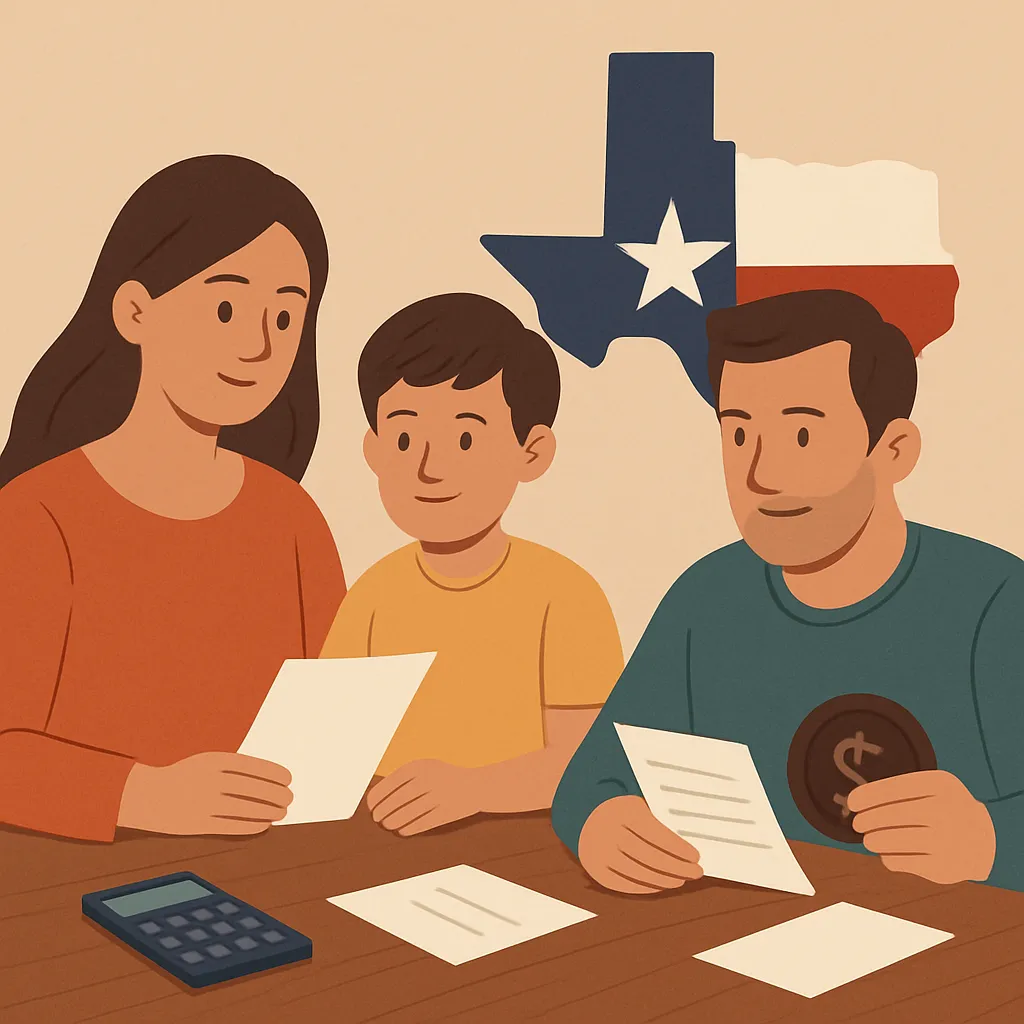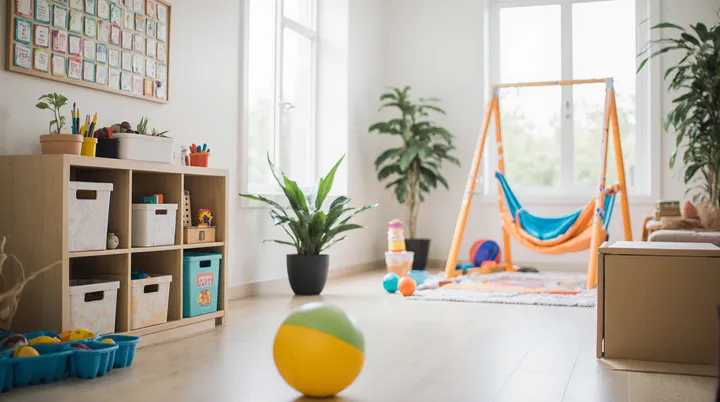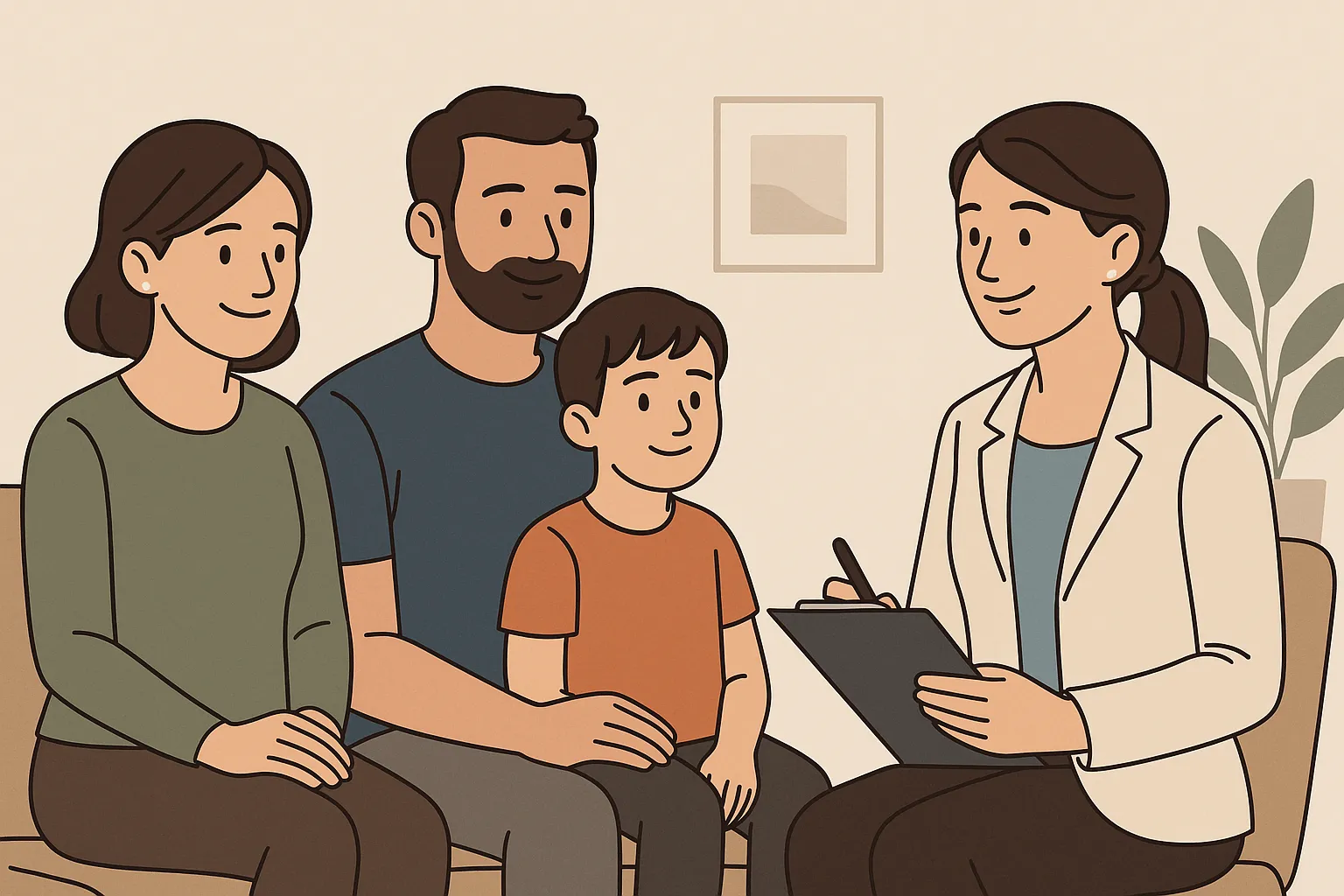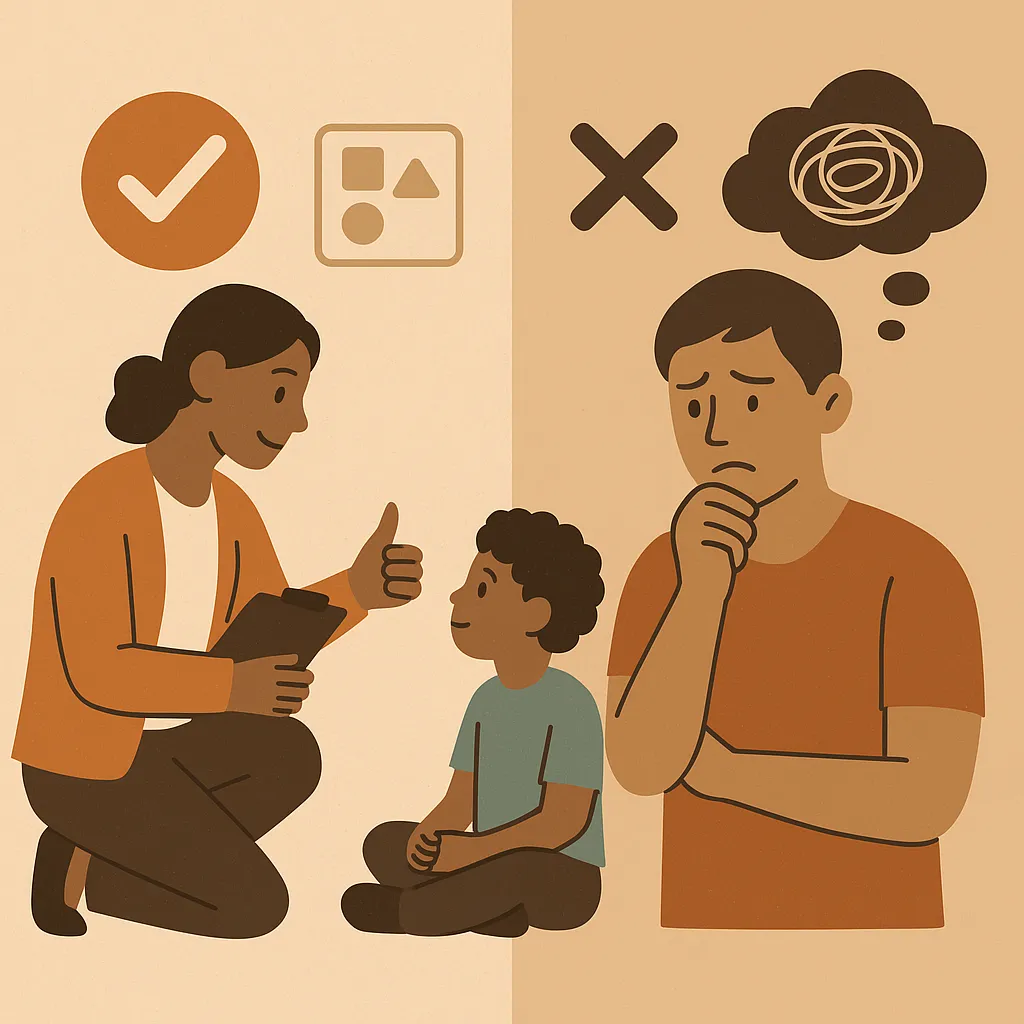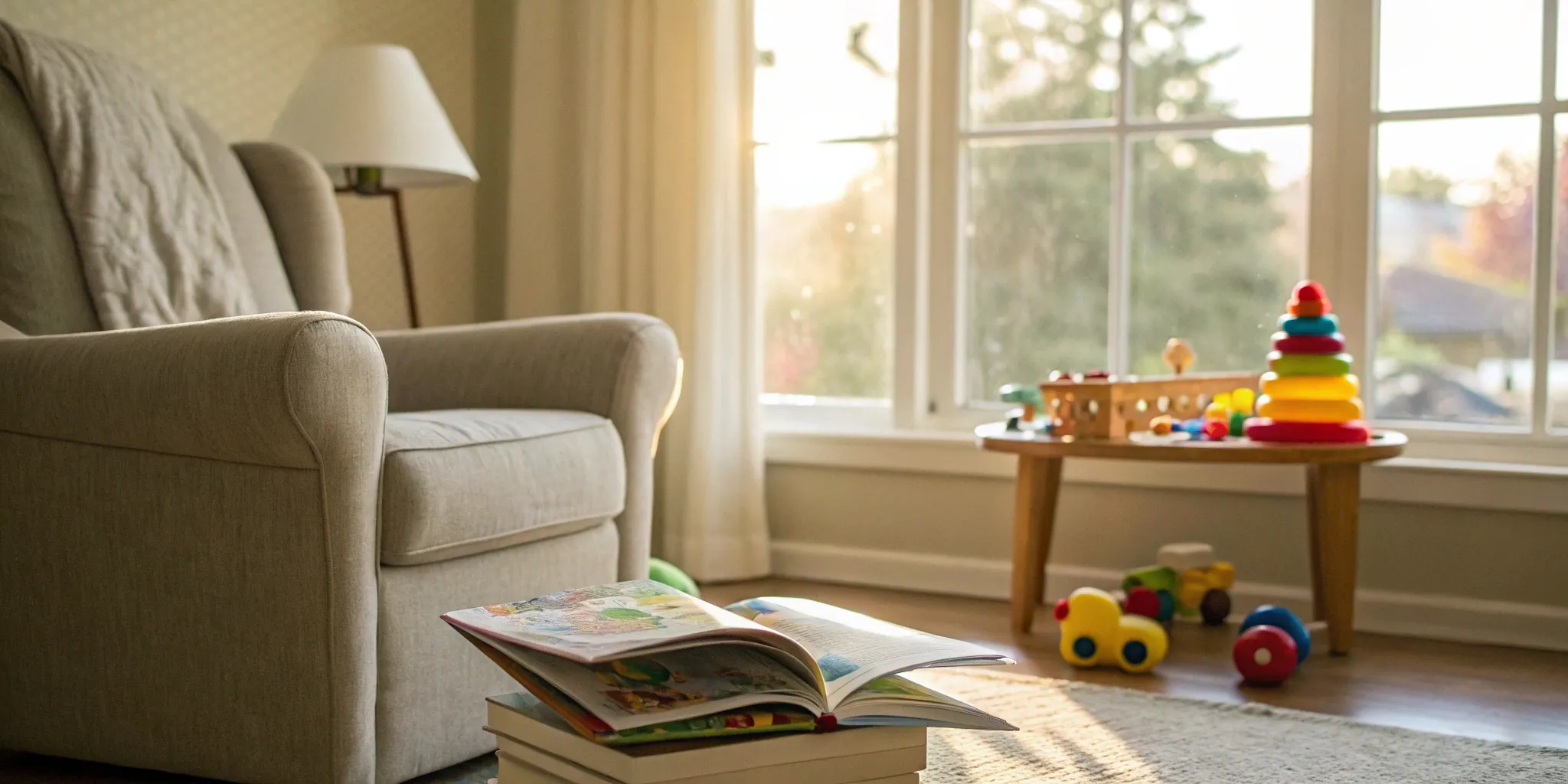Finding Private ABA Therapy: Costs, Benefits & What to Expect
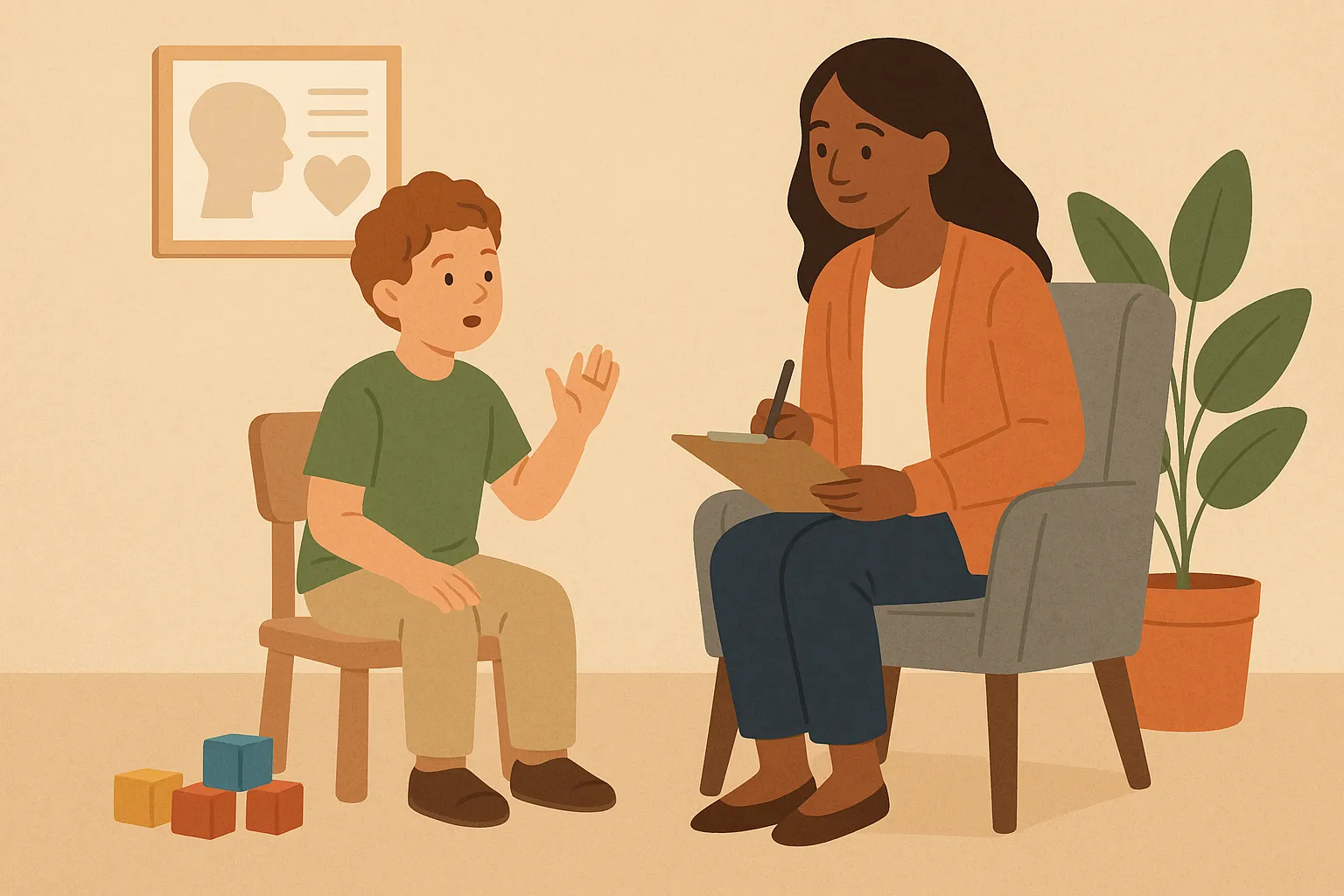
Private ABA therapy gives families access to one-on-one support, flexible scheduling, and care tailored to each child’s unique needs. Whether your goal is to improve communication, strengthen social skills, or encourage greater independence, private ABA offers the focus and adaptability needed for steady progress.
This guide explains what private ABA therapy is, how it works, its benefits and costs, and what families should look for when choosing a provider.
Key Takeaways
- Personalized, flexible care: Private ABA therapy provides one-on-one attention, adaptable scheduling, and goals tailored to each child’s unique needs and family routines.
- Engaging, structured sessions: Each session blends play and skill-building under BCBA guidance, keeping children motivated while reinforcing real-world progress.
- Data-driven progress: Continuous tracking and family collaboration ensure measurable growth and lasting results.
What is Private ABA Therapy?
Private ABA therapy provides individualized support for children with autism spectrum disorder (ASD) or developmental differences. It’s based on Applied Behavior Analysis (ABA), an evidence-based approach to understanding and improving meaningful behaviors.
In private settings, children work one-on-one or in small groups with a Board Certified Behavior Analyst (BCBA) or a Registered Behavior Technician (RBT) supervised by a BCBA. Sessions are designed around each child’s strengths and priorities, creating an environment that encourages learning, curiosity, and confidence.
Private ABA therapy can take place:
- At home, where children learn within familiar routines.
- In a clinic, where the environment is structured and distraction-free.
- Online (virtual sessions), offering convenience for families with busy schedules or limited local options.
This flexibility allows families to choose a setting that best fits their child’s needs and their daily rhythm.
The Principles Behind Private ABA Therapy
ABA therapy works by breaking down complex skills into smaller, manageable steps. Each step is practiced, reinforced, and gradually expanded until the child can perform it independently. The method relies on positive reinforcement, which helps children stay motivated and engaged.
Common strategies include:
- Modeling and prompting – Therapists demonstrate desired behaviors, guiding children through each step.
- Positive reinforcement – Successes are rewarded, encouraging repetition of positive behaviors.
- Data-driven decisions – Therapists continuously measure progress and adjust strategies to ensure lasting improvement.
What to Expect in a Session
Private ABA therapy typically begins with an initial BCBA assessment to understand your child’s current skills and goals.
- Session length: 60–180 minutes, several times per week.
- Focus: 1–3 priority skills practiced through play, routines, or structured tasks.
- Delivery: An RBT provides direct therapy under BCBA supervision.
- Parent involvement: Short coaching moments help families carry strategies into daily life.
Progress data is reviewed weekly, and goals are adjusted every 4–8 weeks to stay aligned with your child’s development.
During sessions, children practice new skills in structured but playful ways, completing activities like following directions, sharing toys, brushing teeth, or using picture communication systems. Each success builds confidence and momentum for the next milestone.
How Private ABA Differs from Other Care Models
Every therapy environment, private, in-home, or school-based, offers distinct advantages. Understanding these differences helps families make informed decisions.
Benefits of Private ABA Therapy
Private ABA therapy stands out for its adaptability and individualized care. Below are the most meaningful benefits families often notice.
- Personalized Treatment Plans
Every child learns differently. Private ABA therapy allows BCBAs to design individualized plans that address specific strengths, challenges, and developmental goals. This focus ensures therapy evolves alongside your child’s progress, with goals updated as soon as milestones are reached. - Focused Attention and Fewer Distractions
In quiet, structured environments, therapists can observe subtle cues — a shift in body language, a pause before responding — that reveal how a child learns best. This attention to detail helps refine techniques in real time, making each session more productive and enjoyable. - Flexible Scheduling and Settings
Families can coordinate therapy around school, work, or other commitments. Some choose morning sessions before school, while others prefer afternoons or weekends. The ability to choose home, clinic, or virtual formats allows therapy to fit naturally into family life without overwhelming routines. - Measurable, Data-Driven Progress
Each child’s journey is tracked through objective data. BCBAs record the frequency and quality of target behaviors, review graphs weekly, and share clear updates with parents. This transparency gives families confidence that progress is tangible and measurable. - Collaboration and Parent Involvement
Parents receive coaching and learn how to reinforce strategies at home, creating consistency between therapy and everyday life. When families practice skills together, during mealtime, playtime, or bedtime, progress accelerates and becomes part of daily connection.
- Whole-Family Impact
Beyond skill-building, private ABA often strengthens family dynamics. Parents report feeling more equipped to handle difficult moments, siblings learn how to engage more positively, and routines at home become smoother and less stressful.
Finding Qualified ABA Therapists
Selecting the right provider is one of the most important decisions a family can make.
Check Credentials
Always verify that your provider is a Board Certified Behavior Analyst (BCBA). Certification confirms the therapist meets professional standards for training and ethics.
Evaluate Compatibility
Choose someone who listens, communicates clearly, and demonstrates genuine patience and empathy. A strong therapeutic relationship builds trust, the foundation for progress.
Start Your Search
- Explore Alpaca Health’s Provider Directory for trusted, certified professionals.
- Check directories such as Care.com.
- Ask for referrals from local autism organizations or support groups.
Provider Red Flags
- Minimal BCBA supervision or high staff turnover
- Generic, one-size-fits-all treatment plans
- Heavy reliance on punishment instead of reinforcement
- Lack of parent communication or progress data
Understanding Private ABA Therapy Costs
Private ABA services are a meaningful investment in your child’s development, and understanding the costs involved helps families plan with clarity and confidence.
- Average cost: $120–$150 per hour, depending on location and therapist experience. For 10–20 hours weekly, monthly costs may range $4,800–$12,000.
- Influencing factors: BCBA experience, session intensity, and regional cost of living.
- Insurance coverage: Most plans now include ABA for children diagnosed with autism. Confirm coverage details and authorization requirements.
- Financial support: Families may qualify for state-funded programs, nonprofit grants, or sliding-scale fees.
For detailed guidance, visit Alpaca Health’s Insurance Hub to learn about coverage and payment options.
Measuring Success and Adjusting Treatment
ABA therapy evolves as your child grows. Continuous collaboration ensures it stays effective and meaningful.
Setting Realistic Goals
BCBAs work with families to define short and long-term objectives, from communication improvements to self-care independence. Starting with achievable targets helps children experience early success and build motivation for more complex challenges.
Tracking Progress
Therapists collect measurable data on new words, social interactions, or daily living skills. Families often receive weekly or monthly reports showing trends in their child’s progress. These reviews also highlight which strategies are most effective and which may need adjustment.
Adapting Plans Over Time
As children develop, their needs and goals change. Some may shift focus from basic communication to peer interaction or from play-based learning to school-readiness skills. ABA’s strength lies in this flexibility; it can continually adapt to support each stage of growth.
Celebrating Achievements
Progress in ABA is built step by step, but even small victories matter. Recognizing these moments, a new word, an independent task, a calm transition, helps families see the bigger picture of progress and keeps everyone engaged in the process.
Common Misconceptions About ABA
ABA aims to empower, not conform, helping children and families find sustainable strategies for growth and connection.
Frequently Asked Questions
Is private ABA therapy right for my child?
Private ABA therapy is ideal for families seeking personalized, flexible care. A BCBA evaluation can help determine whether this model best supports your child’s learning style and daily routines.
How soon will we see progress?
Many families begin noticing improvements in communication and self-help skills within a few months, though every child’s pace is unique and depends on consistency and session hours.
Does private ABA replace school-based programs?
No. Private sessions often complement school services, reinforcing skills and strategies across home and classroom environments.
What if we can’t afford private ABA?
Check your insurance coverage first; most plans now cover ABA therapy for autism. Many providers, including Alpaca Health, offer help with benefit verification and can suggest grants or sliding-scale options.
Can ABA be done online?
Yes. Virtual ABA therapy delivers the same evidence-based methods through secure video sessions, offering convenience for families with limited local access or busy schedules.
Final Thoughts
Private ABA therapy offers the structure, personalization, and flexibility families need for lasting progress.
With guidance from a certified BCBA, children can build skills that enhance communication, independence, and quality of life.
Whether used alone or alongside in-home or school-based care, private ABA therapy can be a powerful step toward helping your child thrive.
High Quality, Local ABA
If you are ready to partner with a local BCBA and receive the highest quality of care, reach out today!







